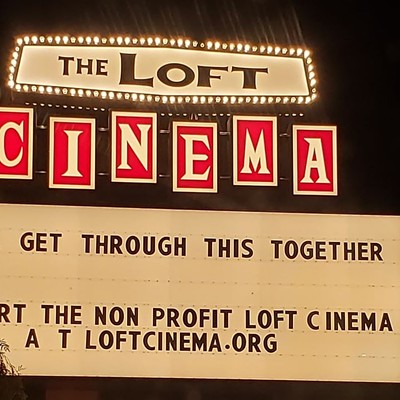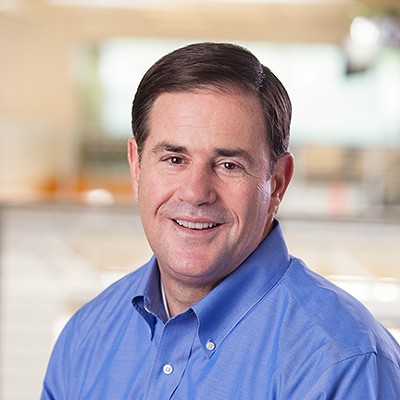Democratic gubernatorial candidate Fred DuVal has proposed a way to stop the dark money flowing into this year's governor's race.
DuVal, who faces no opponent in next month's primary election, last week asked his opponents to abide by a "dark money pledge.
"Here's my offer: if Doug Ducey, Scott Smith, Christine Jones, Ken Bennett, and Barry Hess will join me, I'll reject any and all support from 'Dark Money' groups," DuVal told the press last week. "If they run ads to support me, I will call on them to stop. If they run them anyway, I will give to charity the same amount of money used to support me or attack my opponent."
It's that last bit about donating to charity—which DuVal called a "high-risk proposition"—that would eliminate the incentive for dark-money groups to play in the election.
"Anybody who cares about the candidate they are promoting is not going to want to put that kind of commitment on the campaign, because there's no net gain," said DuVal, who explained that the transfer of campaign dollars to charity "makes it impossible for the campaign to control its narrative and therefore significantly damages the campaign."
Among the Republican candidates, Secretary of State Ken Bennett has said he'd support the pledge, according to Team Bennett spokesman Matt Roberts.
Representatives from the campaigns of attorney Christine Jones, Arizona Treasurer Doug Ducey and former Mesa mayor Scott Smith did not respond to the Weekly's inquires as of press time.
DuVal did not deliver a copy of the pledge to underdog GOP candidate Frank Riggs, but the former California congressman condemned anonymous campaigning when asked about DuVal's proposal.
"You won't find me, or anyone associated with my campaign, making anonymous attacks on my opponents; not directly, nor through a blog or "independent" group controlled by a political operative," Riggs said via email. "Those sleazy tactics just fuel public disgust with politics and further erode public trust and participation in our representative democracy."
So far, more than a million dollars in dark money has been spent in the Republican primaries for governor and attorney general, with vast majority focused televised attack ads, according to Team DuVal.
Dark money is the new term for the dollars spent by groups that do not have to identify their contributors, unlike traditional political committees. The new independent campaigns are often run by non-profit organizations whose donors are forever kept secret—a campaign innovation that accelerated since the Supreme Court's Citizens United decision opened the door to anonymous contributions.
Most of the dark money in the gubernatorial race has been spent to aid Ducey.
DuVal said he is troubled by the rise in dark-money spending.
"You don't know who's behind it or what agenda they are serving," DuVal said. "That's something that the public has a right to know."
DuVal said he would not go forward with his proposal unless the Republican candidates agreed as well because he's not interested in "unilateral disarmament."
But he does believe that the increased use of dark money is bad for politics.
"Someone has to do something," DuVal said. "I'm seizing higher ground and hoping that others will follow me there."

















